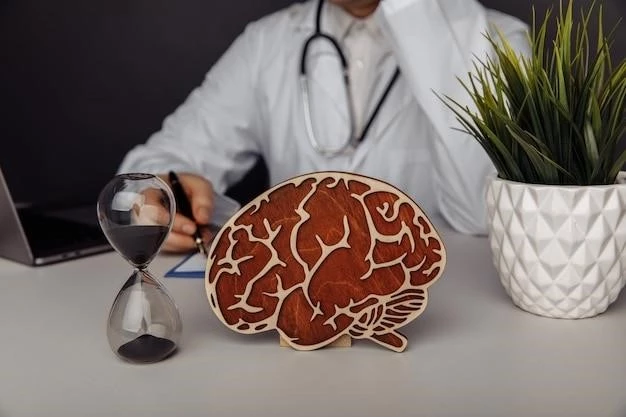Introduction to Trichinosis
Trichinosis, caused by the roundworm Trichinella, is a parasitic infection that affects body tissues. Symptoms typically include diarrhea, heartburn, and nausea.
Trichinosis, also known as trichinellosis, is a parasitic infection caused by roundworms of the Trichinella type. The disease is primarily spread by consuming raw or undercooked meat containing Trichinella cysts. Symptoms include diarrhea, abdominal pain, muscle inflammation, and fever, with potential complications if left untreated. Prevention involves thoroughly cooking meat and avoiding consumption of undercooked meats from infected animals.
Overview of Trichinosis
Trichinosis, caused by a roundworm parasite, is a zoonotic disease transmitted through consumption of undercooked meat containing Trichinella larvae. The infection presents with gastrointestinal symptoms and can lead to serious complications if untreated.
Trichinosis is primarily contracted by ingesting undercooked meat containing the encysted larvae of Trichinella worms. Common sources include pork, wild game meat, and poorly processed meats from infected animals, leading to the parasite’s transmission to humans.
Trichinosis symptoms may include diarrhea, heartburn, nausea, abdominal cramps, muscle inflammation, fever, and swelling around the eyes, typically appearing after consuming contaminated meat.
Common Signs and Symptoms
Common symptoms of trichinosis include diarrhea, heartburn, nausea, abdominal cramps, muscle inflammation, fever, and swelling around the eyes. These symptoms typically arise after consuming contaminated meat and may progress to more severe complications if left untreated.
Source of Infection

Trichinosis is primarily contracted by consuming undercooked meat containing Trichinella larvae, commonly found in pork, wild game meat, and other inadequately processed meats.
Understanding the Parasite’s Life Cycle
The lifecycle of Trichinella involves the ingestion of contaminated meat by humans, leading to the larvae’s release in the stomach. The larvae then mature, penetrate the intestinal wall, and enter the bloodstream, eventually establishing themselves in muscle tissue, causing symptoms of trichinosis.
Trichinosis, a food-borne parasitic infection caused by Trichinella, has a worldwide presence with an estimated 10,000 cases occurring annually. Various Trichinella species can cause human disease, with Trichinella spiralis being the most common globally, especially in pigs.
Global Occurrence of Trichinosis
Trichinosis, caused by the parasite Trichinella, has a significant global presence with an estimated 10,000 annual cases worldwide. Various Trichinella species contribute to human infections, with Trichinella spiralis being the most prevalent, especially in pigs, across different geographic regions.
The diagnosis of trichinosis involves identifying Trichinella larvae in biopsy muscle tissue or specific antibodies in the bloodstream, based on symptoms and history of consuming contaminated meat.
Methods for Detecting Trichinella Larvae
Diagnosing trichinosis involves identifying Trichinella larvae in muscle biopsies or detecting specific antibodies in the bloodstream, based on symptoms and history of consuming contaminated meat. Laboratory testing aids in confirming the infection, guiding proper treatment.
Effective prescription drugs are available for treating trichinellosis caused by Trichinella infection. Treatment initiation is vital based on symptoms, exposure history, and diagnostic results.
Available Medications for Trichinosis
Prescription drugs are available for treating trichinosis, with treatment initiation crucial based on symptoms, exposure history, and diagnostic outcomes. Effective medications can help address the infection and associated symptoms caused by Trichinella.
Preventing trichinosis involves ensuring meat is cooked to safe temperatures, using a food thermometer, avoiding consumption of raw or undercooked meat, and practicing good food hygiene.
Key Strategies for Avoiding Infection
Preventing trichinosis involves thorough cooking of meat, using food thermometers, avoiding raw or undercooked meat, and maintaining good food hygiene practices, which are essential in minimizing the risk of infection.
Trichinella larvae are commonly found in raw or undercooked meat, particularly from pork products, wild game meats, and inadequately processed meats from infected animals, making them high-risk foods for trichinosis transmission.
Identifying Foods Prone to Trichinella Contamination
Foods prone to trichinella contamination include raw or undercooked meat, specifically pork products, wild game meats, and inadequately processed meats from infected animals. Precautions when handling and preparing these foods can help prevent trichinosis.
Trichinosis affects thousands worldwide annually, with Trichinella spiralis being the most common causative species found in various meats, emphasizing the importance of proper cooking and food safety measures.
Notable Cases and Statistics
Trichinosis, caused by consuming undercooked meat, impacts thousands globally yearly. Trichinella spiralis is a prevalent species, highlighting the importance of safe cooking practices.
Untreated trichinosis can lead to serious complications such as muscle inflammation, fever, joint pain, chills, abdominal cramps, and swelling around the eyes, affecting an individual’s overall health and well-being.
Untreated trichinosis can lead to serious complications such as muscle inflammation, fever, joint pain, chills, abdominal cramps, and swelling around the eyes, significantly impacting an individual’s health and quality of life.

Potential Complications of Untreated Trichinosis
Untreated trichinosis can lead to serious complications including muscle inflammation, fever, joint pain, chills, abdominal cramps, and swelling around the eyes, affecting overall health.
Trichinosis, a zoonotic disease, spreads when animals or humans consume undercooked meat contaminated with Trichinella larvae. While meat-eating animals like pigs, dogs, and wild carnivores can harbor the parasite, human infection does not occur through person-to-person contact.
Transmission Between Animals and Humans
Trichinosis, a zoonotic disease, spreads when animals or humans consume undercooked meat contaminated with Trichinella larvae. Meat-eating animals like pigs, dogs, and wild carnivores can harbor the parasite.
Ongoing Studies on Trichinosis Treatment and Prevention
Current research focuses on improving methods for diagnosing, treating, and preventing trichinosis, with ongoing studies exploring new medications, diagnostic techniques, and public health strategies to enhance the management and control of the disease.
Public education efforts focus on raising awareness about trichinellosis risks from consuming undercooked meat, emphasizing the importance of proper cooking techniques and food safety practices.
Initiatives to Inform the Public About Trichinosis Risks
Education initiatives aim to raise awareness about the risks of trichinosis from consuming undercooked meat, emphasizing proper cooking techniques and food safety practices to prevent infection.
Trichinosis, caused by Trichinella roundworms, affects body tissues with symptoms like diarrhea, heartburn, nausea, muscle inflammation, and fever, demanding proper diagnosis and prompt treatment.
Summary of Key Points on Trichinosis
Trichinosis, caused by Trichinella roundworms, affects body tissues with symptoms like diarrhea, heartburn, nausea, muscle inflammation, and fever, demanding proper diagnosis and prompt treatment.
